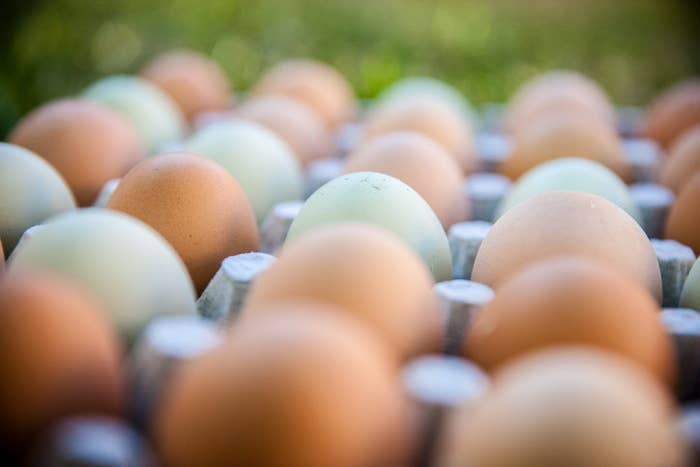
The cage-free eggs rush promised in recent years is coming up against an unfortunate reality: Consumers simply aren't as willing to pay the premium for more–humanely raised products as companies had expected.
This week, the country's largest egg producer — Cal-Maine Foods of Jackson, Mississippi — said it would be "adjusting" its cage-free egg production to be more in line with "reduced demand" and would resume increasing capacity if "demand trends change."
The setback calls into question how quickly industries can roll out sustainability initiatives, especially when doing so means a bump in prices. Other companies are now making pledges about reducing antibiotics use in livestock, and food companies that represent about 70% of US egg demand had committed to going cage-free in the next decade. These premium eggs, however, can retail for about twice as much as conventional eggs.
Cal-Maine Foods said in a release:
As reported, many food service providers, national restaurant chains, and major retailers, including our largest customers, have made public commitments to transition away from conventional eggs and exclusively offer cage-free eggs by future specified dates. However, the higher price gap between conventional eggs and specialty eggs has resulted in reduced demand for specialty eggs. We have adjusted our production levels in line with current customer demand for cage-free eggs, and we are well positioned to increase our capacity when demand trends change.
The company reported a loss of $16 million in the most recent quarter. This summer, CEO Dolph Baker said, "Right now, there is a much greater demand for commodity eggs at these low prices than there is for cage-free eggs.”
At the same time, companies are cutting the price of cage-free eggs, responding to market demands. Recent data from the US Department of Agriculture show that advertised prices for a 12-pack of large cage-free eggs are down to about $1.82 per dozen this week, compared with $3.13 a year ago (the average price for cage-free eggs during the month of September was about $2.60). "There is a significant increase in ads for USDA Organic and cage-free eggs," according to a weekly market report. All that discounting suggests the supply is just too high.
The massive industry shift from conventional eggs was largely sparked by public pressure from animal rights activists, whose efforts prompted major retailers to pledge to go cage-free. According to the egg industry's lobbying group, the resulting transformation was "a mess, and it all started because activist groups forced food companies to do this," BuzzFeed News previously reported.
Meanwhile, other animal rights groups are arguing that cage-free standards are still not humane.
"I think corporate boardrooms [of retailers and food manufacturers] gave in to pressures by groups that are not really consuming eggs but pushing an animal welfare agenda or are anti-animal agriculture. True consumer demand is in the store where the money buys the product," Phillip Clauer, senior instructor at Penn State's Department of Animal Science, told BuzzFeed News. "I think they are listening to agenda demands here and not true sales demand."
